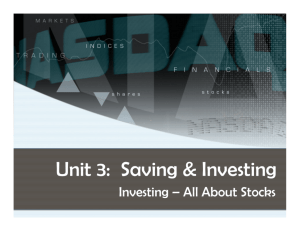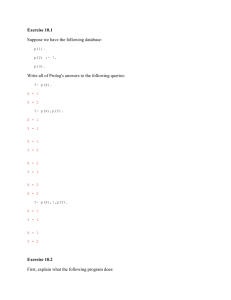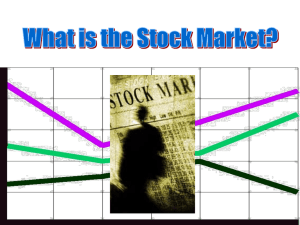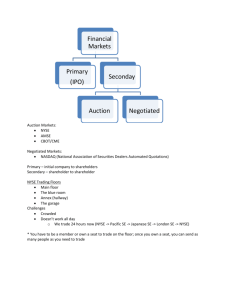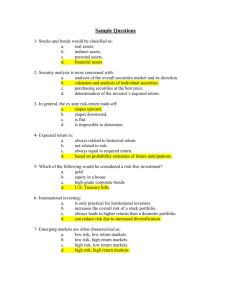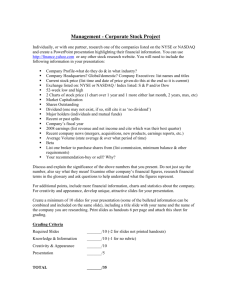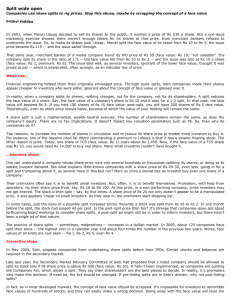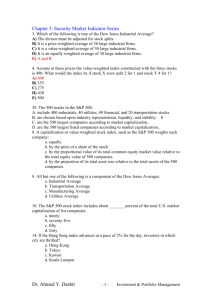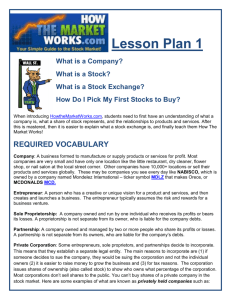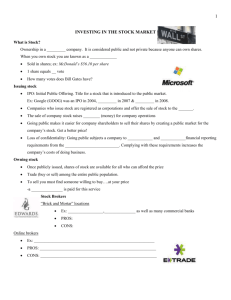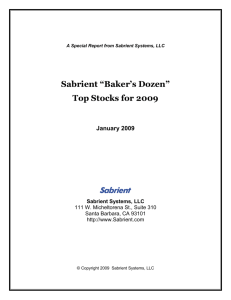Are Stock Splits Millionaire Makers?
advertisement
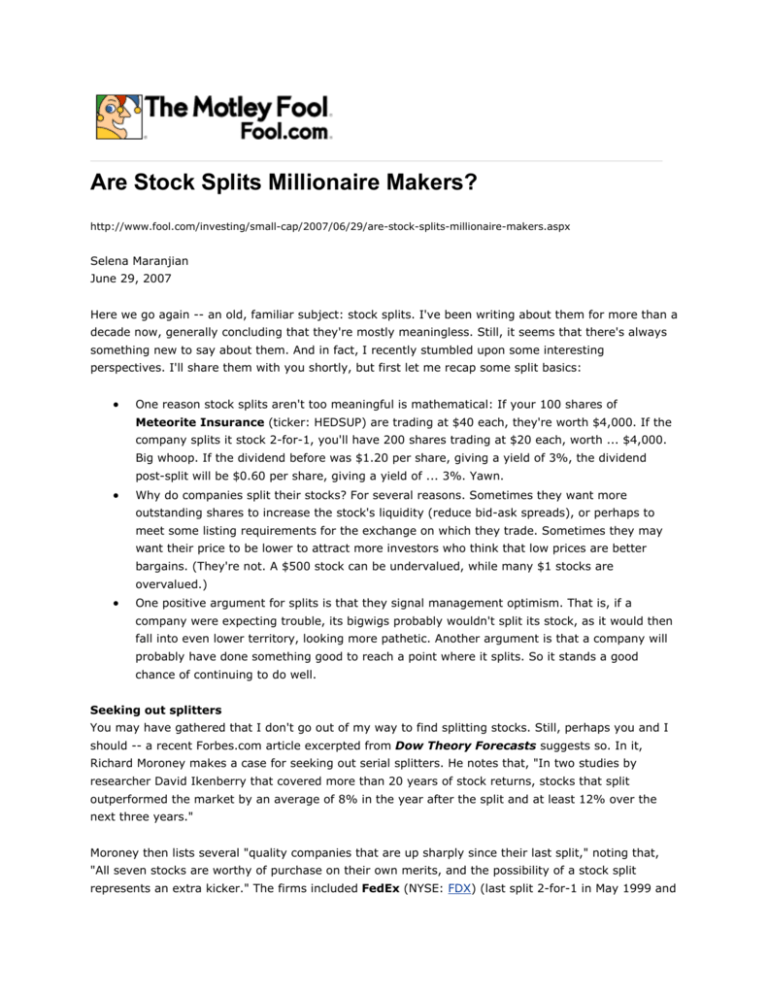
Are Stock Splits Millionaire Makers? http://www.fool.com/investing/small-cap/2007/06/29/are-stock-splits-millionaire-makers.aspx Selena Maranjian June 29, 2007 Here we go again -- an old, familiar subject: stock splits. I've been writing about them for more than a decade now, generally concluding that they're mostly meaningless. Still, it seems that there's always something new to say about them. And in fact, I recently stumbled upon some interesting perspectives. I'll share them with you shortly, but first let me recap some split basics: • One reason stock splits aren't too meaningful is mathematical: If your 100 shares of Meteorite Insurance (ticker: HEDSUP) are trading at $40 each, they're worth $4,000. If the company splits it stock 2-for-1, you'll have 200 shares trading at $20 each, worth ... $4,000. Big whoop. If the dividend before was $1.20 per share, giving a yield of 3%, the dividend post-split will be $0.60 per share, giving a yield of ... 3%. Yawn. • Why do companies split their stocks? For several reasons. Sometimes they want more outstanding shares to increase the stock's liquidity (reduce bid-ask spreads), or perhaps to meet some listing requirements for the exchange on which they trade. Sometimes they may want their price to be lower to attract more investors who think that low prices are better bargains. (They're not. A $500 stock can be undervalued, while many $1 stocks are overvalued.) • One positive argument for splits is that they signal management optimism. That is, if a company were expecting trouble, its bigwigs probably wouldn't split its stock, as it would then fall into even lower territory, looking more pathetic. Another argument is that a company will probably have done something good to reach a point where it splits. So it stands a good chance of continuing to do well. Seeking out splitters You may have gathered that I don't go out of my way to find splitting stocks. Still, perhaps you and I should -- a recent Forbes.com article excerpted from Dow Theory Forecasts suggests so. In it, Richard Moroney makes a case for seeking out serial splitters. He notes that, "In two studies by researcher David Ikenberry that covered more than 20 years of stock returns, stocks that split outperformed the market by an average of 8% in the year after the split and at least 12% over the next three years." Moroney then lists several "quality companies that are up sharply since their last split," noting that, "All seven stocks are worthy of purchase on their own merits, and the possibility of a stock split represents an extra kicker." The firms included FedEx (NYSE: FDX) (last split 2-for-1 in May 1999 and up 108% since then), ExxonMobil (NYSE: XOM) (last split 2-for-1 in July 2001 and up some 122% since then), and PepsiCo (NYSE: PEP) (last split 2-for-1 in May 1996 and up about 160% over 11 years). Who knows when, or if, these companies will split again, though. If you want some verified splitters, check out Yahoo! Finance's stock-split calendar. I found these recent splits listed there: Split date June 14 June 15 June 22 June 22 Company Crocs (Nasdaq: CROX) Buffalo Wild Wings (Nasdaq: BWLD) Gilead Sciences Express Scripts Split ratio 2-1 2-1 2-1 2-1 But wait! Before you rush off to seek out stock splitters, here's another point of view: Scott Rothbort of LakeView Asset Management has noted that there seem to be fewer stocks splitting these days, and he thinks the trend might continue. As evidence, he points to a longer-than-usual collection of companies with prices above $100 per share, such as Apple (Nasdaq: AAPL) and Goldman Sachs (NYSE: GS). He notes that high prices might keep more speculators away, and he also offered a reasoning that I hadn't thought of before: That a high stock price can be valued by a company as a sign of success, and therefore prestige. It can attract certain investors, just as a low price can attract other kinds of investors. Longtime Fool contributor Selena Maranjian owns shares of PepsiCo. She recently learned that the eyes of goats and octopuses have rectangular pupils. For more about Selena, viewher bio and her profile. Buffalo Wild Wings is a Hidden Gems recommendation. FedEx is a Stock Advisor recommendation. The Motley Fool is Fools writing for Fools.

